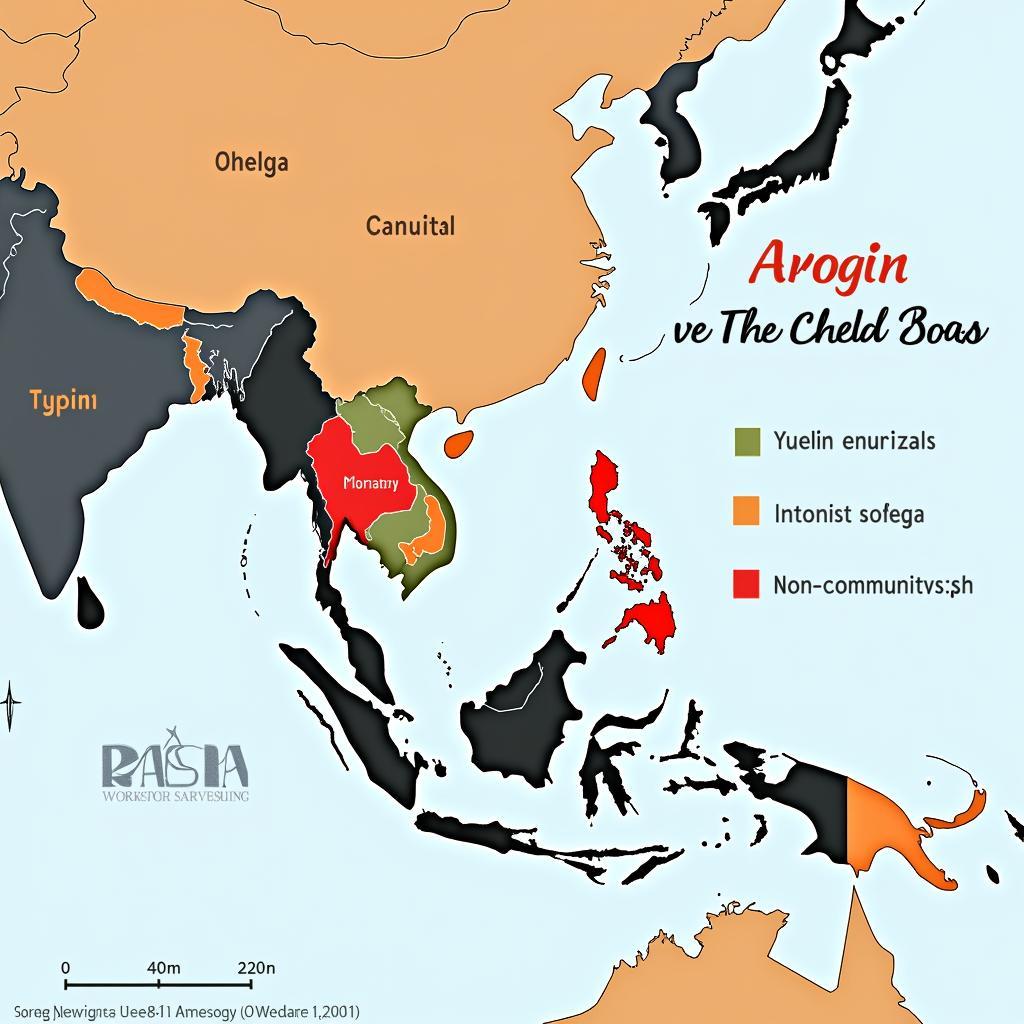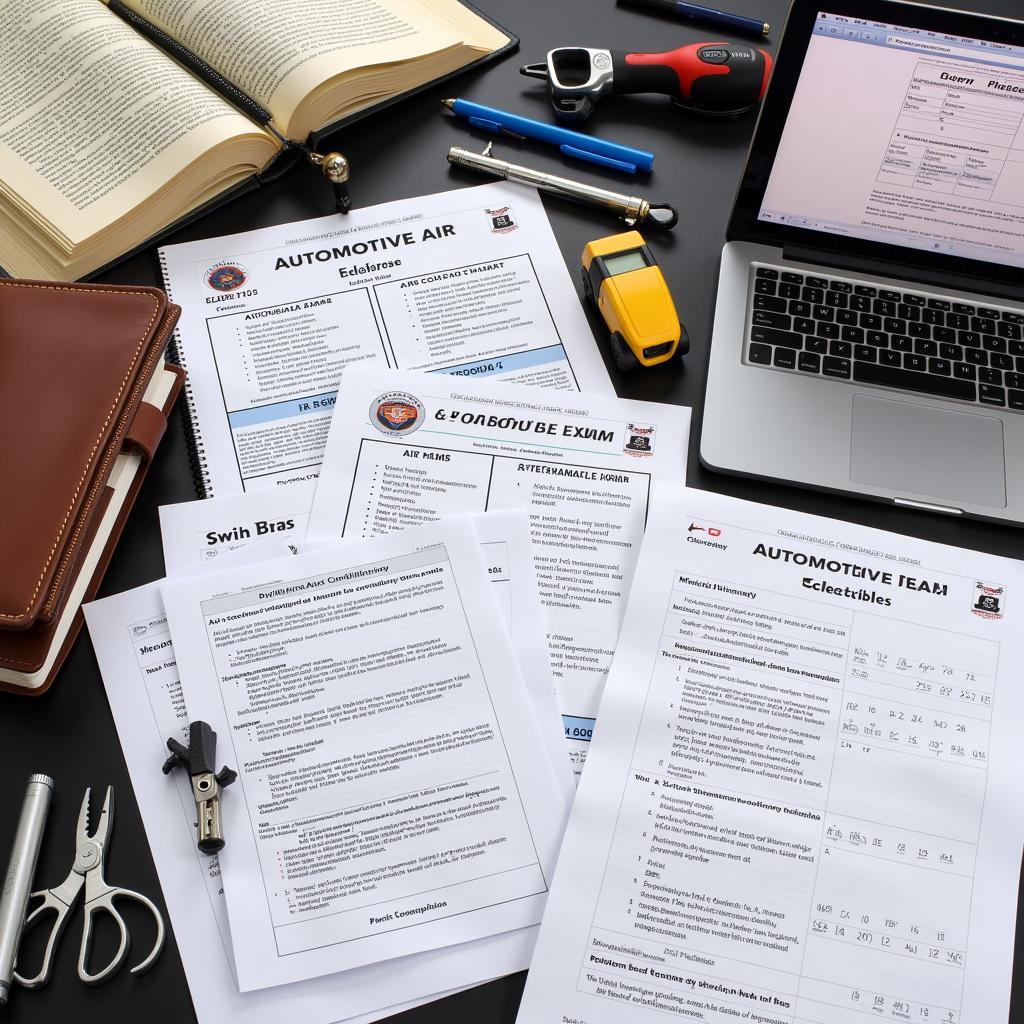The question “Why Was Asean Formed” is crucial to understanding the political landscape of Southeast Asia. The Association of Southeast Asian Nations (ASEAN) arose from the ashes of post-colonial struggles and Cold War tensions, a beacon of hope for regional stability and cooperation. This article delves into the complex historical, political, and economic factors that led to the formation of ASEAN, exploring its initial goals and how they have evolved over time.
Formed in 1967, ASEAN’s creation was driven by a potent mix of shared anxieties and aspirations. The founding members sought to navigate the turbulent waters of the Cold War, grappling with the threat of communism, internal insurgencies, and the lingering effects of colonialism. They envisioned a regional bloc that could foster peaceful coexistence, accelerate economic growth, and promote social progress. why is asean formed These early objectives laid the groundwork for ASEAN’s enduring commitment to regional cooperation.
The Cold War and the Birth of ASEAN
The Cold War cast a long shadow over Southeast Asia, fueling ideological divisions and proxy conflicts. The fear of communist expansion was palpable, prompting nations to seek alliances and strengthen their defenses. ASEAN emerged as a bulwark against communist influence, offering a platform for non-communist states to collaborate and present a united front.
Navigating the Threat of Communism
The founding members of ASEAN – Indonesia, Malaysia, the Philippines, Singapore, and Thailand – recognized that a unified approach was essential to counter the perceived communist threat. By forming a regional organization, they aimed to bolster their collective security and deter external interference.
 Cold War Influence on ASEAN Formation
Cold War Influence on ASEAN Formation
Economic Cooperation: A Driving Force
Beyond security concerns, the desire for economic advancement was a key driver behind ASEAN’s formation. The founding members understood that regional cooperation could unlock significant economic opportunities, promoting trade, investment, and development.
Fostering Economic Growth and Development
ASEAN envisioned a future where member states could leverage their collective strengths to achieve greater economic prosperity. By reducing trade barriers and facilitating cross-border investments, they aimed to create a dynamic regional market that would benefit all participants. asean when was it formed
Addressing Post-Colonial Challenges
The legacy of colonialism loomed large over Southeast Asia in the 1960s. Newly independent nations faced daunting challenges, including political instability, weak institutions, and underdeveloped economies. ASEAN provided a framework for addressing these shared challenges, fostering a spirit of solidarity and mutual support.
Building Regional Solidarity
By working together, ASEAN members aimed to overcome the lingering effects of colonialism and build a more stable and prosperous future. The organization served as a platform for sharing best practices, exchanging knowledge, and coordinating policies on a range of issues.
Promoting Social Progress and Cultural Exchange
From the outset, ASEAN recognized the importance of social and cultural cooperation. The organization aimed to promote people-to-people connections, foster mutual understanding, and celebrate the rich cultural diversity of the region. what countries are in the asean
Bridging Cultural Divides
ASEAN has played a significant role in bridging cultural divides and promoting a sense of shared identity among its diverse member states. Through educational exchanges, cultural programs, and sporting events, the organization has facilitated greater interaction and understanding between the peoples of Southeast Asia.
“ASEAN’s commitment to fostering cultural exchange is essential for building a sense of regional community,” says Dr. Ananya Sharma, a prominent Southeast Asian Studies scholar at the National University of Singapore. “By celebrating our shared heritage and promoting cross-cultural understanding, we can strengthen the bonds that unite us.”
ASEAN’s Evolution: From Security to Economic Integration
While security concerns initially dominated ASEAN’s agenda, the organization has evolved significantly over time. Economic integration has become a central focus, with initiatives like the ASEAN Free Trade Area (AFTA) and the ASEAN Economic Community (AEC) driving greater regional connectivity. are banks open during asean summit 2017 philippines
A Dynamic Regional Bloc
ASEAN has emerged as a dynamic regional bloc, playing an increasingly important role in global affairs. Its commitment to multilateralism and its focus on economic cooperation have made it a key player in shaping the future of Southeast Asia. “ASEAN’s success lies in its ability to adapt to changing circumstances,” observes Professor Kenji Tanaka, an expert on international relations at the University of Tokyo. “The organization has demonstrated remarkable resilience and flexibility, navigating complex geopolitical challenges and evolving to meet the needs of its members.”
In conclusion, why was ASEAN formed? The answer lies in a complex interplay of historical, political, and economic factors. From the Cold War to post-colonial challenges and the pursuit of economic prosperity, the founding members envisioned a regional organization that could address these shared concerns and build a more stable and prosperous future. ASEAN continues to evolve, adapting to new challenges and opportunities while remaining steadfast in its commitment to regional cooperation.
FAQ
- What is the primary goal of ASEAN?
- When was ASEAN established?
- Which countries are members of ASEAN?
- How does ASEAN promote economic cooperation?
- What role does ASEAN play in addressing regional security challenges?
- How does ASEAN promote cultural exchange among its members?
- What are some of the key achievements of ASEAN?
For further information and assistance, please contact us at Phone Number: 0369020373, Email: [email protected], or visit our address: Thon Ngoc Lien, Hiep Hoa, Bac Giang, Vietnam. Our customer service team is available 24/7.


